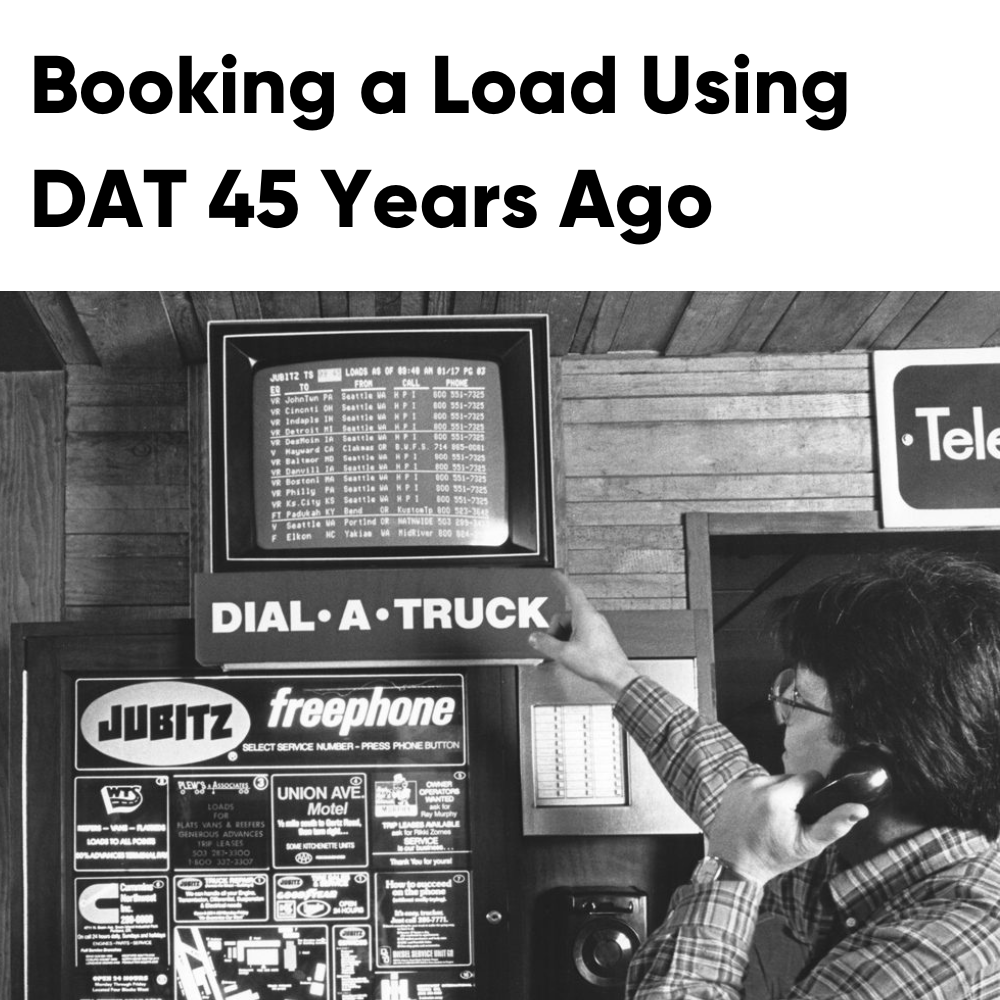🎣 Chameleon Carrier Tied To Crash
Plus: Trump extends tariff deadline to August 1, new tax bill includes wins for trucking, and the DEA seizes 700 lbs of meth from a semi in Georgia.

It’s not uncommon for people to be unaware of the freight broker industry before joining it. Friends and family not in the industry, tend to wonder why trucking companies can’t just work directly with shippers, and why brokers are needed. The truth is that freight brokerage is a relatively recent development in the United States, born out of the deregulation of the transportation industry.
Before 1980, the trucking industry was highly regulated, with the government setting shipping rates through the Motor Carrier Act. These rates ensured that carriers could often deadhead back to their starting point. In 1978, the Airline Deregulation Act, signed by President Jimmy Carter, removed government oversight of airline fares and routes, which were previously regulated by the Civil Aeronautics Board (CAB). This led to more competitive pricing and market-driven fare structures in the airline industry.
The Motor Carrier Act of 1980 deregulated the trucking industry, allowing for more flexibility in pricing. The Interstate Commerce Commission (ICC) had previously set rates based on factors like distance, weight, and commodity type. With deregulation, the freight brokerage industry emerged, connecting shippers and carriers and negotiating competitive rates based on market forces.
The creation of DAT, originally known as Dial-A-Truck, came just two years before the Motor Carrier Act. Dial-A-Truck displayed available loads on TV screens at truck stops, paving the way for the use of load boards for truckers to find backhauls. As the US economy grew, so did the importance of freight brokers (& simultaneously load boards).
The Motor Carrier Act made the trucking industry more competitive, leading to lower shipping rates as backhauls became more common. One of the first successful entrants in the freight brokerage industry was American Backhaulers, founded in 1981 by Paul Loeb. In 1984, Jeff Silver joined the team, and together, they propelled the industry forward with little competition. American Backhaulers was eventually sold to C.H. Robinson in 1999 for $100 million.
Loeb and Silver went on to make further significant contributions to the freight brokerage industry. Loeb founded Command Transportation, which was sold to Echo Global Logistics in 2015. Silver, along with his wife Marianne, founded Coyote Logistics, which was acquired by UPS for $1.8 billion. Their sons, Andrew and Matt, also made their mark in the industry: Andrew co-founded MoLo, which was acquired by ArcBest in 2021, while Matt founded Forager Logistics, a cross-border logistics company, which was acquired by Arrive Logistics in 2022.
This brief history provides an insight into the birth and growth of the freight broker industry, a sector that continues to evolve and shape the transportation landscape in the United States. If you found this information interesting, consider sharing it with a friend.
Join over 12K+ subscribers to get the latest freight news and entertainment directly in your inbox for free. Subscribe & be sure to check your inbox to confirm (and your spam folder just in case).